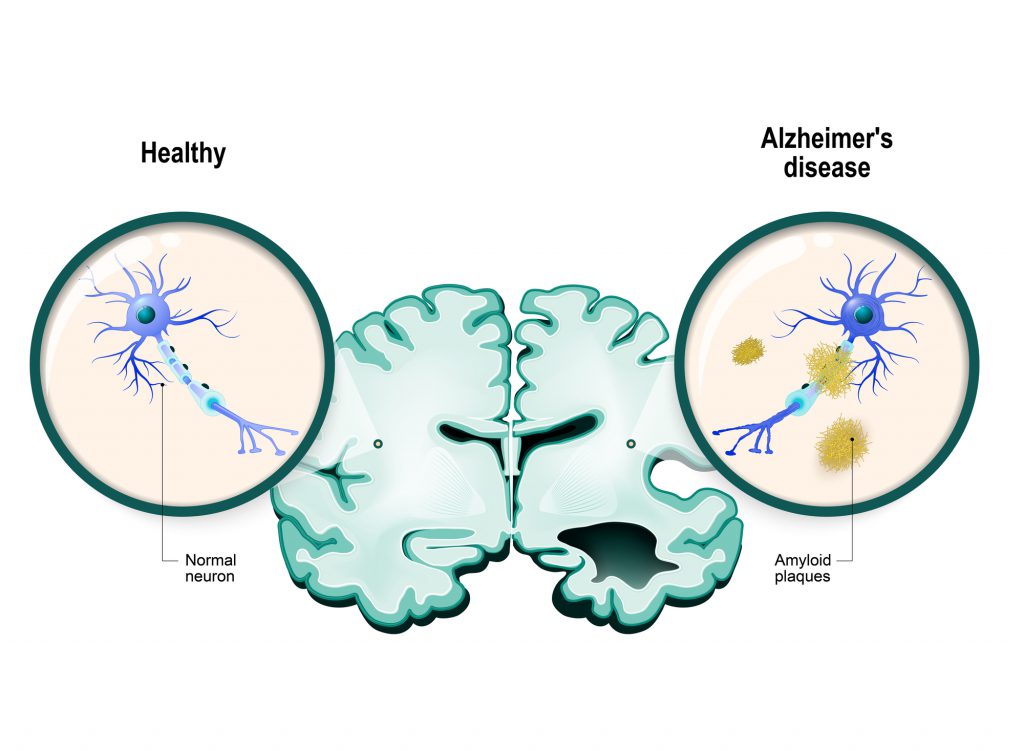Every 3 seconds, there's someone who develops dementia around the world. This is according to the Annual World Alzheimer's Report. Memory loss tests (Dementia test) are everywhere. At times, it is being self-administered. But, when do one consult an expert?
Furthermore, dementia symptoms are commonly caused by many things. Even more, there are side effects from medications, depression, thyroid problems, vitamin deficiencies and alcohol abuse. Read more about types of dementia here.
Dementia or Alzheimer's: What's the Difference?
Before we begin, one needs to understand that one is a disease and one is a syndrome.
First, Dementia is a syndrome that has number of causes. Then, Neurons (or nerve cells) in areas of the brain involved in cognitive function have been damaged or destroyed. Furthermore, the main characteristics revolve around difficulties with memory, speaking/listening, problem-solving and other cognitive skills. Because of that, these symptoms affect a person’s ability to perform daily activities.

Finally, Alzheimer’s disease is a degenerative brain disease and is the most common cause of dementia. Then, neurons in other areas of the brain are eventually damaged or destroyed as well. Furthermore, the difference is that destruction includes areas that enable one to carry out basic functions such as walking and swallowing. Conversely, patients on their final stages are bedridden and require round-the-clock care. Hence, it is an ultimately fatal condition.
Dementia Tests Available Online
In contrast to Alzheimer’s and other brain diseases, conditions often may be reversed with treatment. Most importantly, early diagnosis is crucial to effective treatment and prevention. WebMD reveals that there’s no single test that will tell a doctor if you have dementia. It’s actually an ongoing process. Example, you may have several of the following, then your doctor will pull information and make a diagnosis. Therefore, there are various dementia tests made available online:

1. Mini–Mental State Examination (MMSE) or Folstein test 
- A 30-point questionnaire that includes simple questions and problems in a number different mental abilities, including a person's memory, attention and language.
- Notably, it is considered the most commonly used by practitioners.
- Also, health experts use this in clinical research settings for cognitive measurements.
- To learn more, visit Psychological Resources Assessment's (PAR) Website.
2. Self-Administered Gerocognitive Examination (SAGE) test
- A 15-question written exam that could help with the early detection of Alzheimer’s disease.
- Also, it is handwritten and designed to be done at home and can be taken in less than 15 minutes.
- Then, participants bring the result to a physician for a more formal evaluation.
- To learn more, visit Wexner Medical Center's Website.
3. The Clock-Drawing test
- A test where the subject is presented with a paper with the instructions to draw a clock.
- Oftentimes, used in combination with other, more thorough screening tests.
- By itself, it can provide helpful insight into a person’s cognitive ability.
- To learn more, visit this site to know more about the study.
4. Test Your Memory (TYM) test
- Series of tasks that include the ability to copy a sentence, semantics, calculation, verbal fluency and recall ability.
- Also, the test is designed to use minimal operator time and to be suitable for non-specialist use.
- Then, each task carries a score with a maximum score of 50 points available.
- To learn more, visit BMJ's website.
5. Neurotrack test
- Takes a snapshot of one’s mental acuity and allows one to track any progression over time.
- Also, it assesses recognition memory, which depends on the integrity of the brain’s hippocampal region.
- Instead of written acuity challenges, the tracks acuity through eye motion using a webcam.
- To learn more, visit Neurotrack’s Website.
6. Mini-Cog© test
- 3-minute test where the test administrator is required and plays an active role.
- Also, consists of two components, a 3-item recall test for memory and a simply scored clock drawing test.
- Can be used effectively after brief training in both healthcare and community settings.
- To learn more, visit Mini-Cog's Website.
Certainly, learning helps prevent brain deterioration and stave off Alzheimer's. An adult brain has the capacity to create new nerve cell connections. Furthermore, it builds up cognitive reserve and resistance to diseases like Alzheimer's. Activities help keep the mind sharp and engaged while fighting the effects of memory loss. Examples are, dancing, playing an instrument or learning a new language.
Find out how Neeuro can improve your cognitive abilities by clicking on the banner below!






Leave a Comment